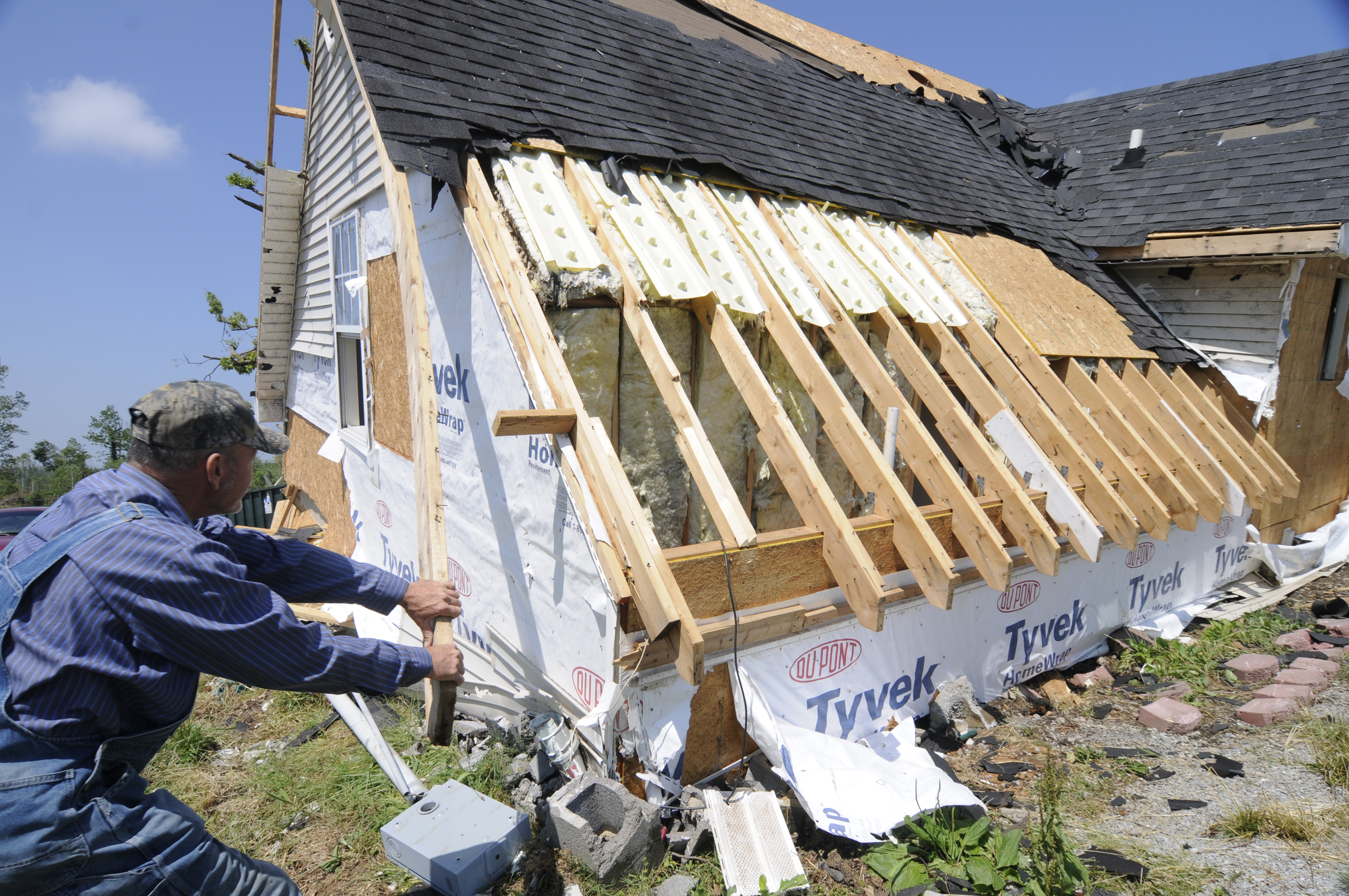ELSEWHERE ONLINETo read the TEMA audit, visit www.comptroller1.state.tn.us/repository/SA/pa11048.pdf.
Red tape and delays in the Tennessee Emergency Management Agency are choking the flow of money for local disaster recovery efforts, according to a state audit.
The performance audit by the Tennessee Comptroller's Office faulted TEMA for taking an average of three months, sometimes longer, to repay local costs for cleanup and repair of public property after a disaster.
"Delaying passing through of funds to county and local governments and certain nonprofit organizations can delay cleanup and recovery work, which can elevate costs and increase problems," the audit stated.
Some local government agency and utility officials agree, but they also are sympathetic to what they see as an overworked, understaffed agency.
Chattanooga's EPB is awaiting $17.5 million in reimbursements for snapped poles and shredded lines left by the April 27 tornadoes and $1.9 million from tornadoes in February.
"It is a lengthy process," Chief Finance Officer Greg Eaves said. "It's definitely a cash-flow shot -- you've got to disburse it and reimburse it."
On the other hand, Eaves said, EPB only submitted its reimbursement request for the April storms in August after totaling invoices from contractors in 21 states for recovery and repairs.
"Obviously, I want it as quickly as possible, but I understand the headaches they have to go through," Eaves said. "One entity takes us two months, and if I'm one of a hundred companies asking for reimbursement, I can understand why it takes TEMA so much time."
Lee Norris, deputy director of Chattanooga's Public Works Department, said the city has applied for $3 million for tornado cleanup.
"We were able to front the money, but I can see where smaller communities really can have some problems," Norris said.
"Poor Communication"
With a budget of $12.4 million this year, TEMA works under the state's Military Department to coordinate disaster readiness and response statewide and supports local governments' efforts. It distributes grants from the Federal Emergency Management Agency and others to aid disaster response and prevention.
In fiscal 2011, TEMA handed out about $60 million in disaster relief and homeland security grants, the audit reported.
The audit is part of a "sunset" process that evaluates state agencies' relevance and efficiency.
Auditors criticized TEMA for delays in passing along FEMA aid to local governments through the Public Assistance Grant program. The process is designed to speed relief to local areas by going around state contract review rules.
"Our audit revealed that the overall processing of disaster grants is suffering from inefficiencies which seem to relate to poor communications between TEMA, the Military Department, and OCR [office of contracts review in Finance & Administration]," the audit reported.
The audit criticized TEMA for not having a contract coordinator who can work directly with OCR. It noted that managers in OCR and the Military Department "do not distinguish 'declared disaster' recovery grants from 'nondeclared disaster' recovery grants and grant them special priority."
Auditors prescribed several steps to speed up the grants by shortening processing time, prioritizing disaster grants and communicating better with OCR and the Military Department.
They also said the delays carry the most burden for rural counties or small city governments, which often have fewer reserves.
In some cases, auditors said, "counties and cities with limited resources have taken out loans to help cover costs until they can be reimbursed, and they are not compensated for the interest. Repairing roads and damaged buildings and community areas is essential to returning communities to normal."
Mea Culpa, Sort Of
TEMA spokesman Jeremy Heidt said the agency agrees with many of the criticisms, with reservations.
He said that state lawmakers last year authorized additional staff but the agency has just begun the hiring process. Meanwhile, there are only three people in TEMA's public assistance department and the agency borrowed staff from other states to attack the backlog.
The May 2010 floods that inundated Nashville affected 49 counties and generated 6,000 claims under the Public Assistance Grant program, he said.
"This year we had 66 counties [from the April 27 tornadoes], some of them multiple disasters," he said. "All the projects from that are still being written."
Also, Heidt said, "some of that is out of our control," referring to the audit's criticism of delay in the office of contracts review and the Department of Military.
"We're definitely working as fast as we can, and we know there's a hardship on those smaller communities," he said.
It's certainly a problem in Bradley County, Emergency Management Agency Director Troy Spence said.
"Past disasters have been, like, a half-million dollars [in public costs]. This disaster, counting the utilities, we're at a little over $9 million. It's a situation where we've got to start getting some of that money back," he said.
"They're using two people over there [in Nashville] to process this thing," he said. "We had 30-something projects. It's going to take a long time."


